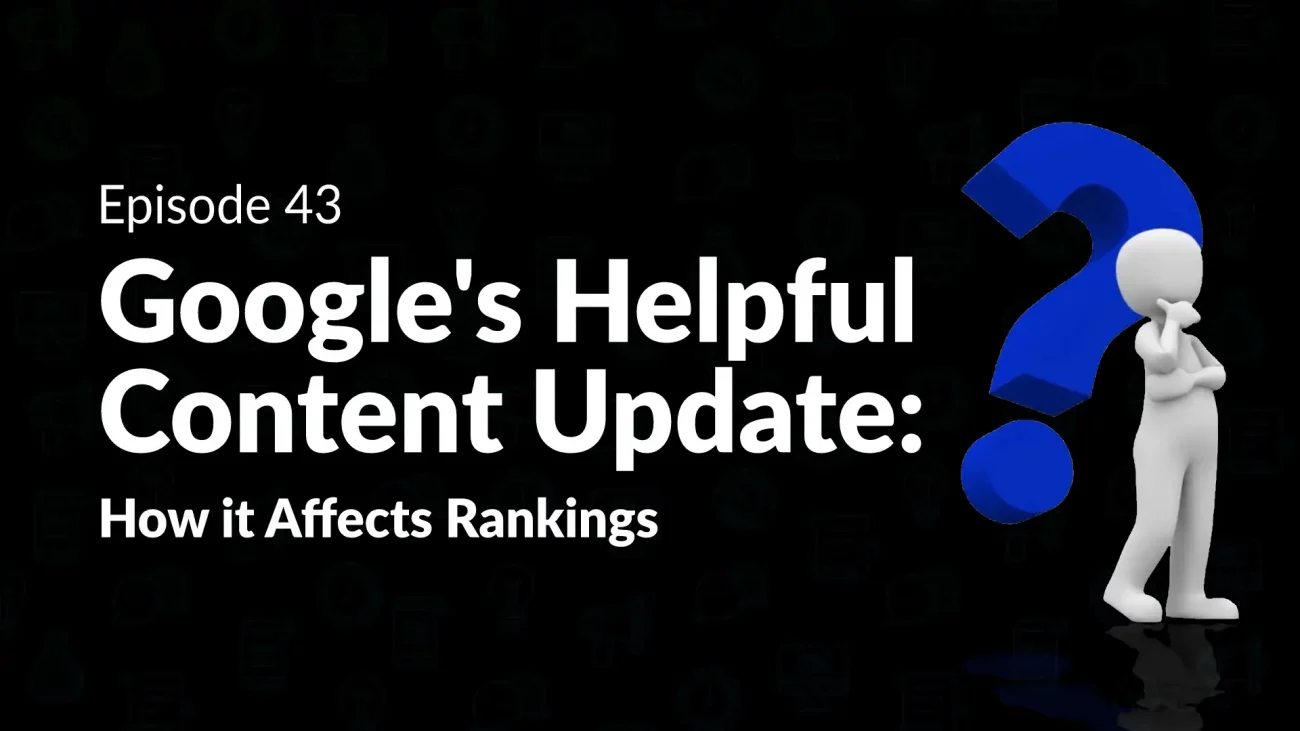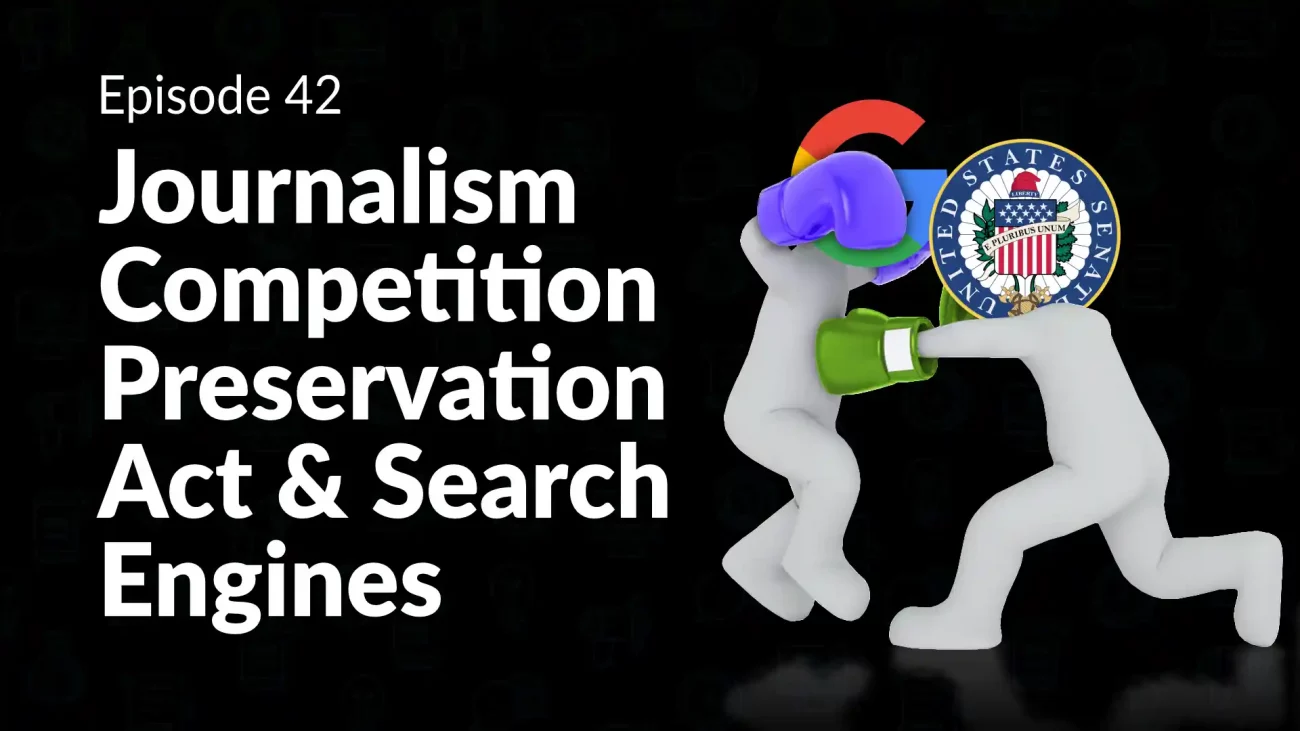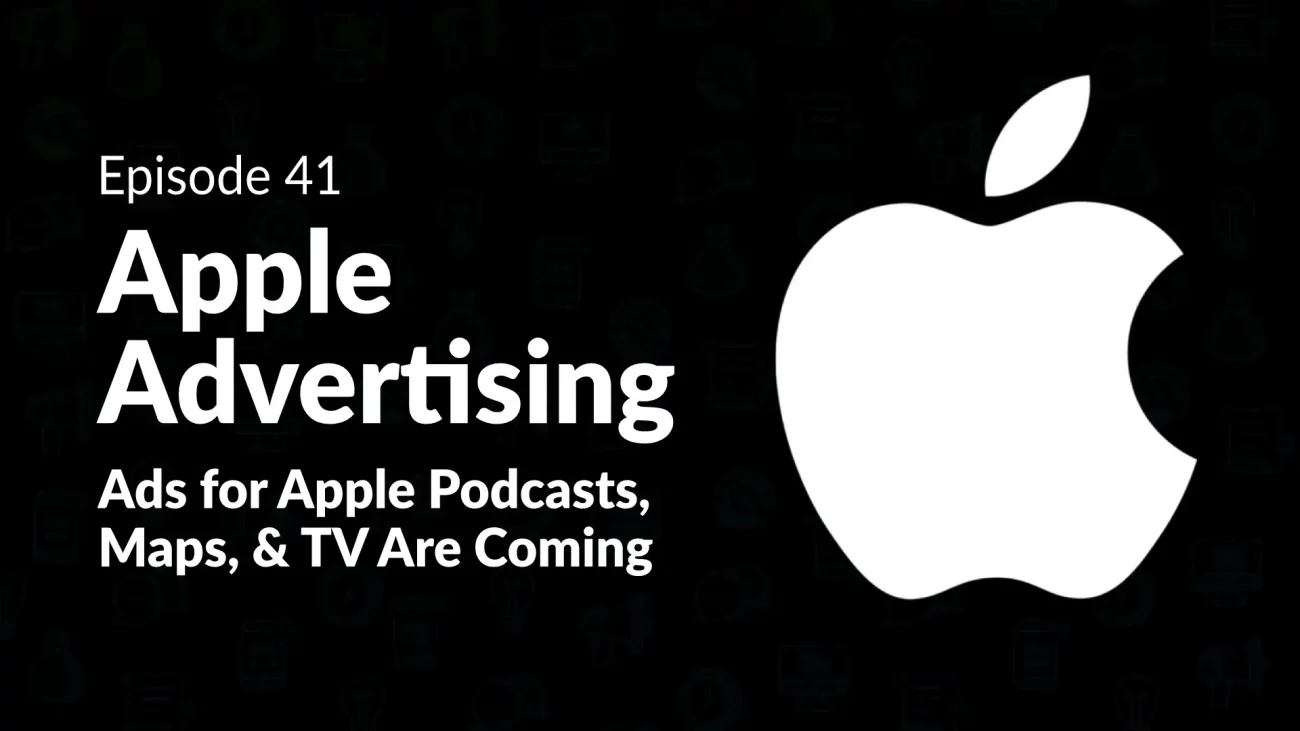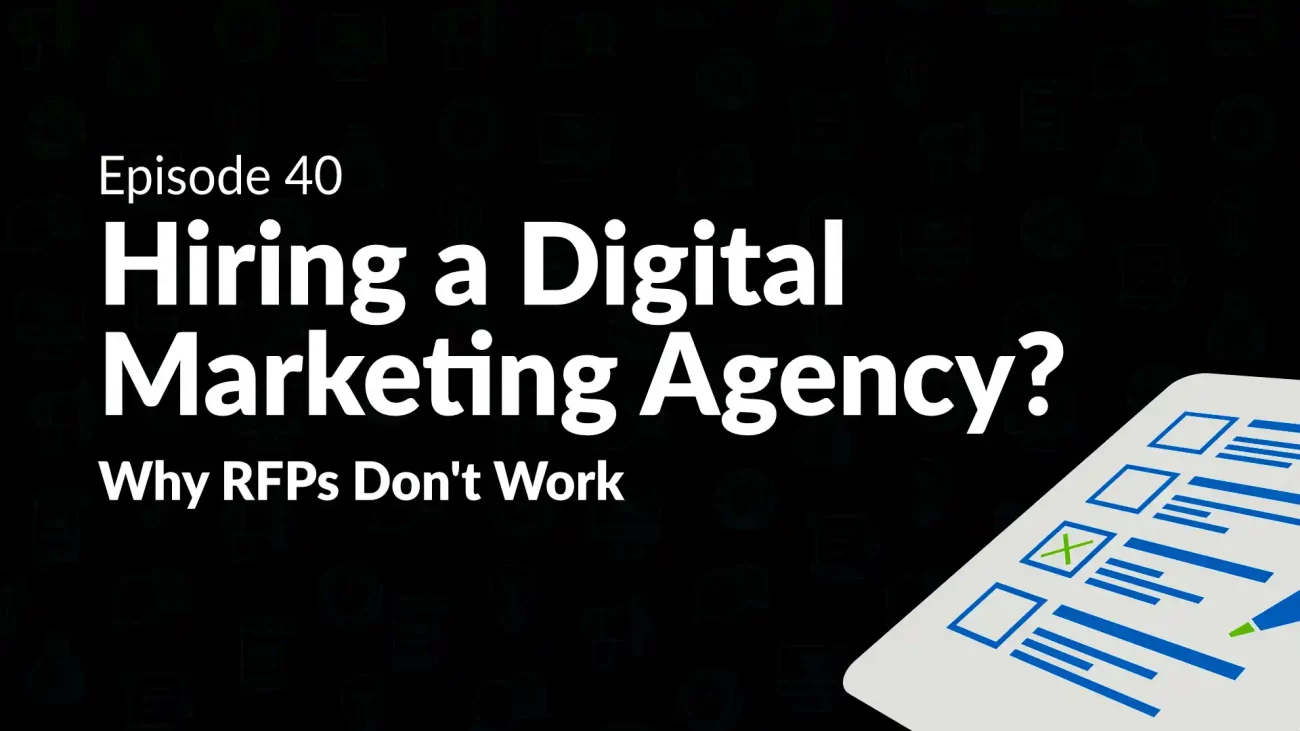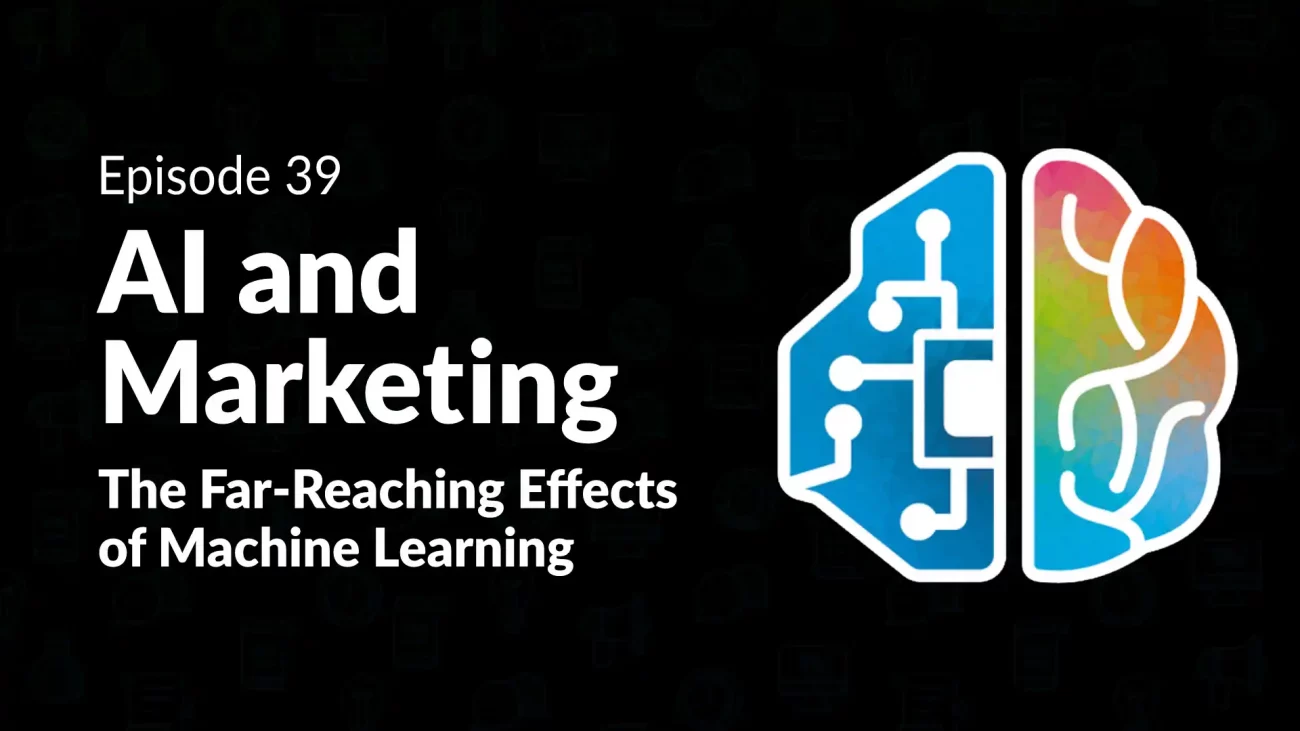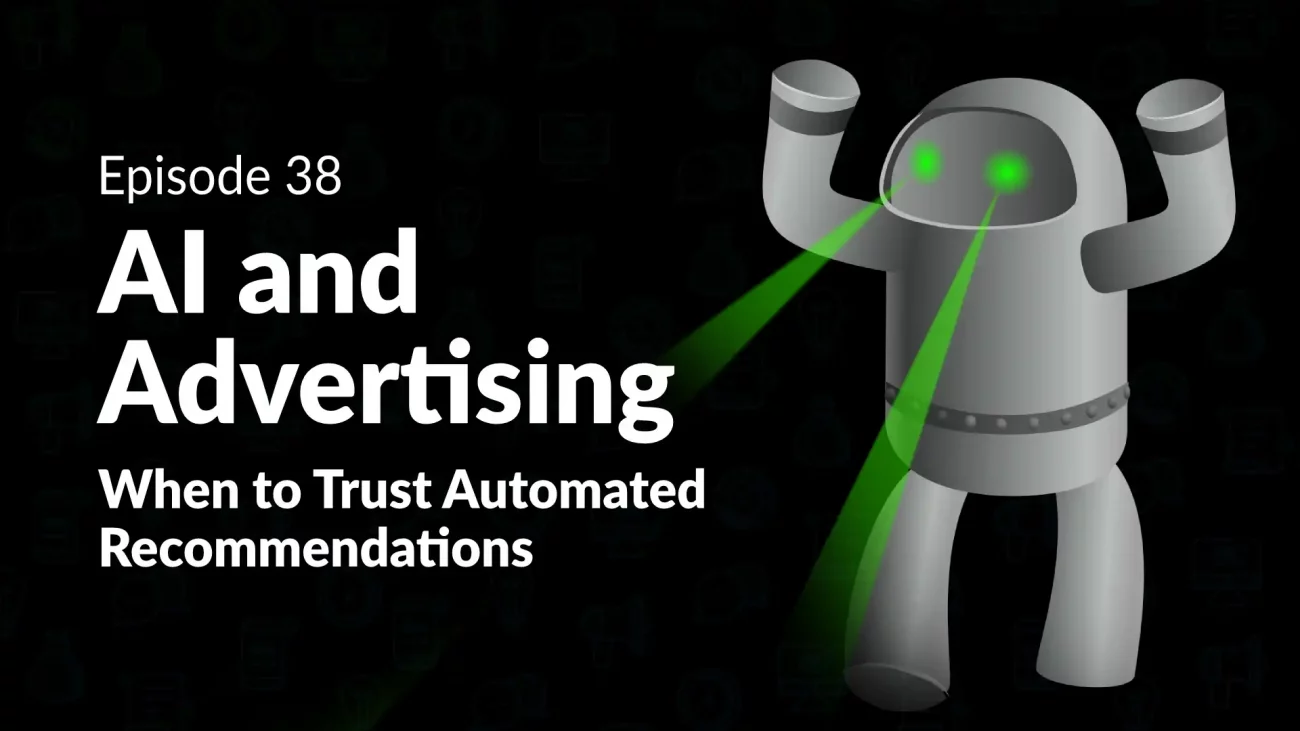Episode 3: Are Facebook Ads a Bad Buy?
Hans and Devin discuss the pros and cons of advertising on Facebook, a giant in decline.
Transcription:
Devin: Welcome to Digital Marketing Mondays. Thank you so much for tuning in. Whether you are watching, listening, or reading this content right now, we appreciate you following along on this journey. As you probably know, by now, this show is specifically designed to help bring you, the marketer, all the critical information about what’s happening in the marketing world and how you can adjust your strategies accordingly to make sure that you are sitting up on the best marketing advice possible. My name is Devin Littlefield.
Hans: I’m Hans Riemer. And today we’re going to talk about advertising on Facebook and actually using Facebook for your marketing. Does it make sense? All those kinds of things. So why don’t we launch into this? Let’s talk a little bit about Facebook as a platform for reaching your target audience, Devin. How many people are there on Facebook these days? Is it big? Is it liberal? Is it growing? Where are we at?
Devin: I’ll tell you, it’s a lot. Based on the article that we read coming into this episode, it looks to be about 70% of all internet users around the globe, so that’s a lot of people. That’s hundreds of millions of people online using Facebook every day. Now keep in mind too. I think this article looks at all of Facebook owned entities. So this is not just the Facebook platform, but it includes WhatsApp. It includes Instagram. It includes anything that Facebook owns and touches at this point.
Hans: Do you think that’s… Are these people logging in daily? Are they spending time? What’s the deal there?
Devin: So that’s a doozy and that’s the thing. Facebook doesn’t release data necessarily about their active number of daily users. They really just report on total users, total user ship and user growth, which is largely different, right? I mean, anecdotally you think about the fact that there’s a huge influx of older folks that came in after Facebook kind of got off the ground. All these kids were using it. They were having fun and good conversations. And then inevitably, as most social networks happens to have or how it, how it works, there’s an influx of older folks who jump in on this platform and then the younger generation will typically leave. And I think that’s kind of where we’re at with the Facebook platform and in itself. I think the daily number of active users amongst anybody millennial and younger is nearly nothing, right?
Probably not, but I’m exaggerating a little bit here, but I think a lot of those folks just have Facebook accounts that have just been sitting idly by for a while. I’m an example of one of them. I haven’t checked my Facebook in over six, eight months and that’s just part of my life.
Hans: I was on there today, so there you go.
Devin: So there you go. Not to show the apparent age difference here between the two of us.
Hans: It is what it is, right?
Devin: It is what it is. So yeah, I think Facebook won’t ever really release that data because they don’t want people to know that, right? They want to make a really strong use case for people continuing to be on the platform and particularly for advertisers to continue advertising on these platforms because that is how they make their money. It’s through ad revenue.
Hans: So you’re making a distinction here between the number of accounts that are created on Facebook and the number of active users. And you’re saying that’s quite a difference there.
Devin: Yep.
Hans: Okay. Yeah, that makes a lot of sense. So let’s talk a little bit about basics of, if you decide you do want to use Facebook, how do you go about it? So I’ve heard a lot of people say, well, first of all, you could use it for free, right? Facebook is free. They don’t charge any money, you create an account and you can start putting stuff on there. And then, as you make more friends, your friends see your stuff. And if you’re a business, you can post things and people will presumably see your posts, so you’ll reach some number of people out there.
Devin: Pretty small.
Hans: I’ve heard that number has gone down over the years, right? You’re not reaching the whole world anymore. So Facebook encourages you. It says, oh, you can boost your post if you want to. So can we talk about that for a minute? Is that a strategy that might make sense?
Devin: I think the only time that may make sense is if you don’t have any resources around you to help advertise, it’s probably your first time ever doing it. You’re probably a local mom and pop shop of some kind and it doesn’t necessarily… It’s not part of any longer-term strategy around your marketing. Right. And at that point, boosting posts is probably applicable and probably okay because you’ll get higher reach that way. And that’s probably what you want it to begin with, 50 bucks, a hundred bucks, and your posts will get out there to [crosstalk 00:04:58].
Hans: Creating awareness?
Devin: Yeah, generally creating awareness. Yeah. But I think For most serious, any serious marketer, especially in high-tech and SAS, higher education, financial institutions, no, I do not think boosting posts will be beneficial at all. And really it’s because to some extent Facebook takes an automated bid approach when it comes to boosting posts. You’re usually… There’s less autonomy around who you actually target. And so it’s just kind of shooting in the dark partially. I think for most of most clients at this point it’s not recommended to really boost posts, especially if you have a comprehensive strategy.
Hans: You do advertising instead. So what’s involved in doing advertising on Facebook, then?
Devin: Definitely more involved. I think what it really comes down to is really having a good understanding of your target market and first identifying whether they’re actually on the platforms or not. Take, for instance, even the difference between Instagram and Facebook, if you were retargeting that maybe mid twenties to 30 something young professional let’s call them, Instagram might actually still be a good platform for building awareness around, but I would not recommend the same strategy around Facebook necessarily. And especially if you’re targeting that younger crowd, but so I think really the heart of it is identifying your target demographic.
And first making sure you’re clear on who that audience is, and then tailoring that strategy appropriately by the platform, which at that point, then it… Assuming that let’s say, Facebook has your ideal audience, like for credit unions, as an example, I think we see oftentimes that running targeted ads for even the 40, 50 something bank switcher as we’ll call them, with a really compelling call to action around a one-time incentive or offer to switch from banks to save or get a better interest rate.
Those actually do really well inside of Facebook platform. And it’s because the audiences is right. The message is right. And there’s a good incentive to boot, right? I think that makes sense. But as another example, like some of my high tech clients, or even SAS companies, if you’re targeting director of sales, director of marketing for specific companies, I do not think Facebook or Instagram are going to be good platforms for you unless your only goal to be very clear is brand awareness. So I think it does just depend on a number of different circumstances, but it all comes down to who’s your target demographic, are they on these platforms? Yes or no. And that will help kind of steer you from there.
Hans: All right. So we’ve talked a little bit about, if you decide you want to advertise, do you use Facebook or not use Facebook? What about using Facebook as an adjunct to other platforms as well? So let’s say we’re doing search ads on Google. We’re doing some targeted B2B advertising on LinkedIn. Do you see Facebook playing a role in there in a combination with other ad platforms? How would you do that?
Devin: Yeah, again, I think it just partially depends on the overall strategy, but really, that high-tech SAS client that I just mentioned a minute ago that is running Facebook ads right now, they’re very clear, and the goal has been very clear from the beginning that it’s a brand awareness play, right? It’s just to drive some more eyeballs. They have the funding for it. It’s perfectly fine to be spending the money to just help make sure that their brand is seen by people a certain number of times. And with that goal in mind, I think the Facebook platform is perfect for them. They also do have content to support both Facebook as a platform, as well as Instagram as a platform, so I think it makes sense. I certainly wouldn’t put all my, and in this case, we’re not putting all of our eggs in that basket because that’s not its goal.
It’s goal is to just keep that brand kind of front and center and on top of mind for others. But I think that marketing mix for most companies will just depend. For credit unions, like I said before, I think Facebook is a great platform and I’d probably put a fair amount of the overall marketing and advertising resources into Facebook in addition to running Google ads or even other platforms as well. It all just comes down to that demographic mix and who you’re trying to get after. Higher education, I’d probably spend a little bit on Instagram in particular, but Facebook platform, if it’s master’s degree programs or even doctorate, and you’re trying to promote those, then sure. Facebook will be fine. But if you’re really just going after traditional undergrad, then a little bit in Instagram will go a long way, but really TikTok and Snapchat are where it’s at for that younger crowd, for sure, especially TikTok.
Hans: Unless we’re targeting their parents, right?
Devin: Yeah. Yeah. Unless you’re targeting their parents to help them make a decision. Absolutely. So, yeah. Then it also comes down to strategy too, which I think that’s a good strategy. I like that idea.
Hans: Cool. All right. Well, thanks Devin. This has been great. Thanks so much for giving us this information about Facebook and I think we’re going to wrap. Well hopefully see everybody next Monday on our next show. So thanks for watching.
Devin: Yeah. Thank you all for tuning in and we’ll see you next week. Bye.




